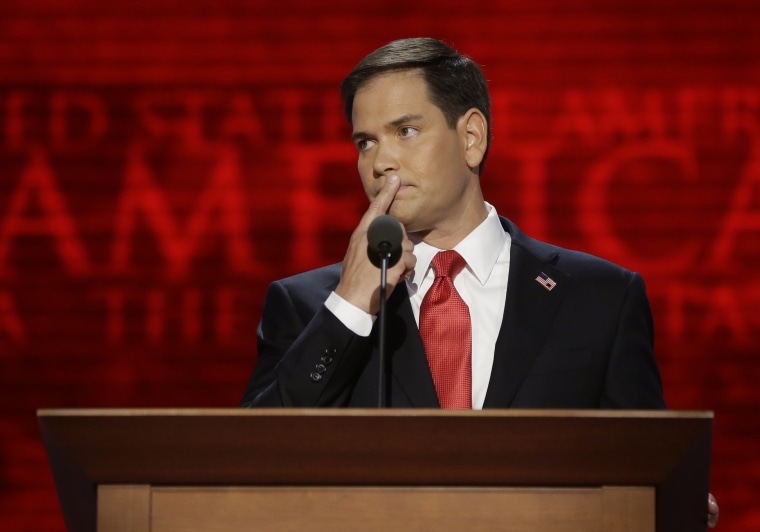On Wednesday, Rubio and Utah Sen. Mike Lee unveiled the blueprint for their long-awaited tax reform plan, which would cut taxes for individuals, families, businesses, and investors while eliminating a swath of deductions. Individual tax rates would be compressed into two brackets of 15% and 35% while the top corporate tax rate would shrink to 25% from 35%. The centerpiece of the plan, and a potential model for GOP policy in the age of stagnant wages, is a pricey new $2,500-per-child tax credit. It will undoubtedly play a central part in a Rubio presidential campaign should the Florida lawmaker take the plunge. [...] There's only one catch: Rubio's plan would likely add trillions and trillions of dollars to the deficit. Sound familiar?
[The senators' new tax plan] creates something that's even more tilted -- outrageously so -- in favor of the country's highest-income people and likely much more fiscally irresponsible. And, like last year's plan, it not only excludes most working-poor families from its new child tax credit but allows much of their existing child credit to disappear after 2017. [...] The big losers under the Lee-Rubio plan, therefore, would be the working-poor people who feed and bathe the elderly, care for preschoolers, clean offices, and perform other essential tasks. The big winners would be the country's highest-income 400 filers, at a cost of much higher deficits.
The new Rubio-Lee plan keeps most of its old structure, with its stingy treatment of low-income workers. It layers on top of that two changes: a far more generous treatment of business income, and a complete elimination of all taxes on capital gains and dividends. [Update: The plan would also, unbelievably, completely eliminate the tax on inherited estates, which for a married couple only begins to apply to inheritances above $10 million.] Both of these new features would lavish massive additional tax cuts on the rich, in addition to those already in the original version. The new Rubio-Lee plan would surpass anything George W. Bush or Mitt Romney ever proposed to do in its ambitions to relieve the richest Americans of their tax burdens.
